#roman myth
Text
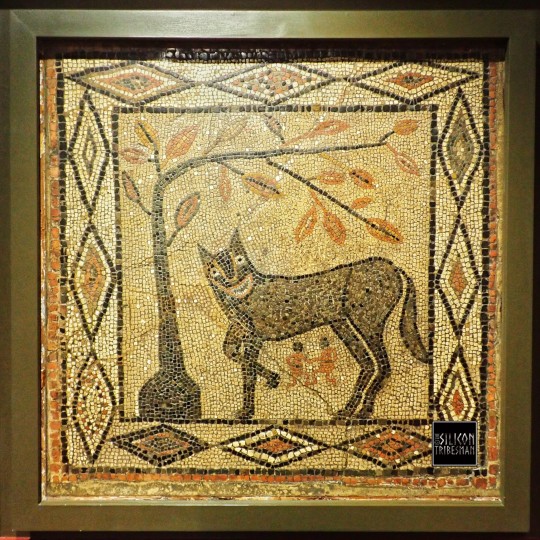
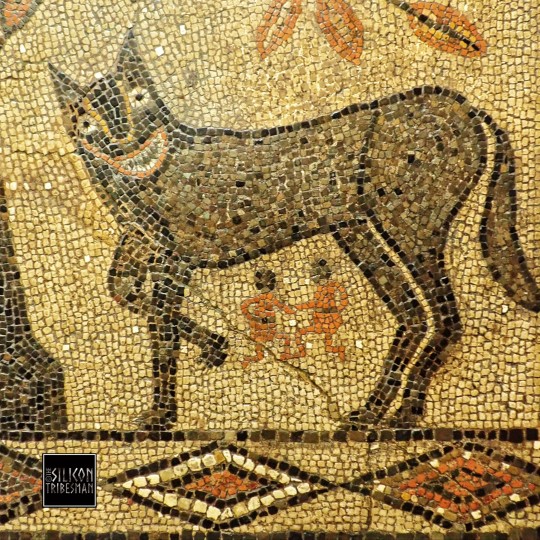

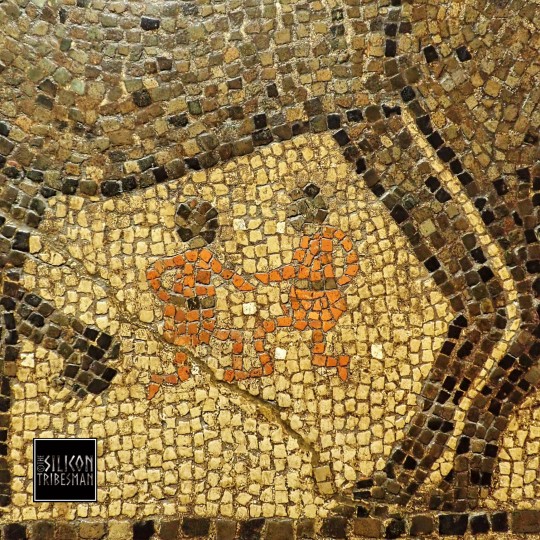
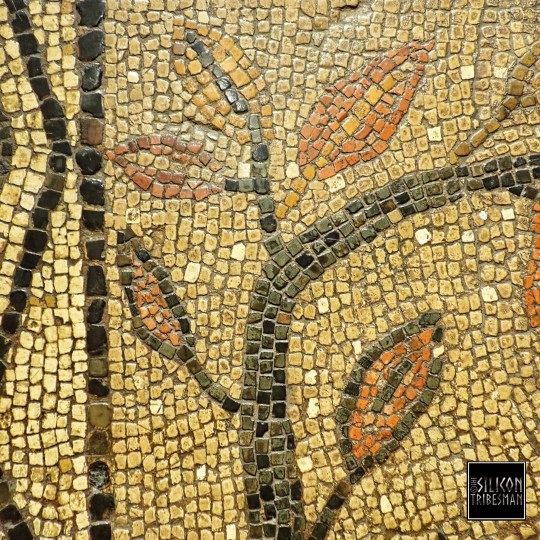
The Wolf and Romulus and Remus Mosaic, Roman Aldborough, North Yorkshire, 300-400CE, Leeds City Museum.
This panel formed the centrepiece of a large mosaic floor constructed in the Roman town of Isurium Brigantum, now Aldborough in North Yorkshire. The mosaic depicts the legend of Romulus and Remus. They were abandoned in the River Tiber but washed ashore where they were fed by a she-wolf.
#romulus and remus#she wolf#roman#roman myth#romans#roman culture#roman villa#roman mosaic#roman craft#roman britain#ancient living#ancient craft#ancient cultures#relic#archaeology#artefact#roman empire#mythology#roman living
785 notes
·
View notes
Text




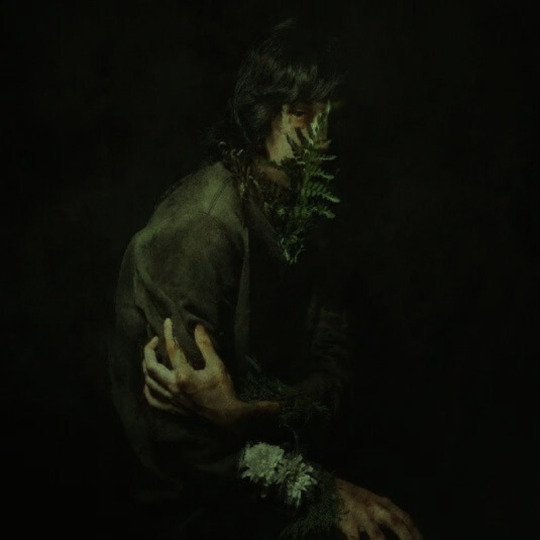
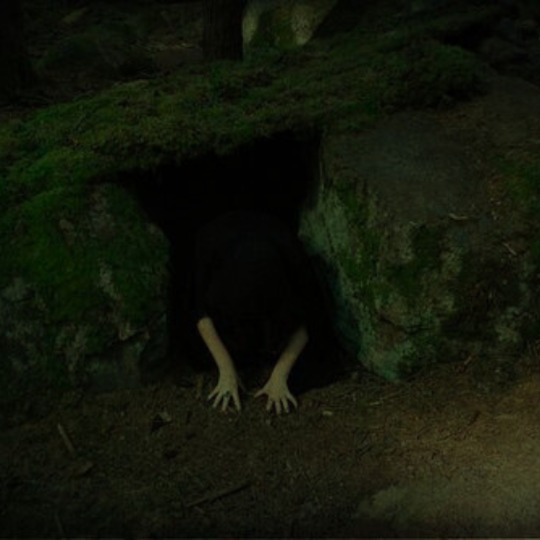



roman mythology: silvanus
silvanus is a protector & god of the forest, fields, and husbandmen. he is also known as the protector of the house, herds, and farm boundaries. silvanus is said to keep the dangers of the woodlands at bay, allowing crops and flocks to flourish.
221 notes
·
View notes
Text
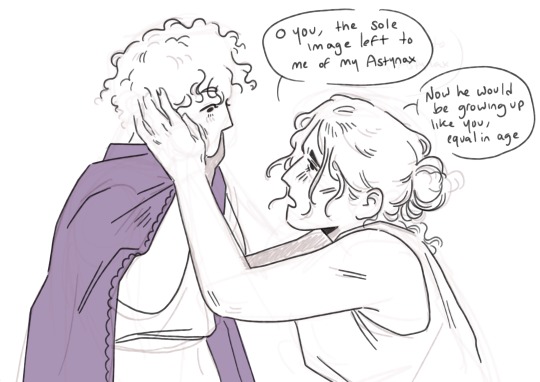
all this pyrrhus talk got my thinking about that scene in the Aeneid where Andromache meets ascanius
#Vergil was EVIL for this one#And her giving him symbols of his culture as the last Trojan heir so he remembers his heritage#And then Trojan culture getting forcibly assimilated into the Latin (Roman) one at the end anyways?? Kill me#This woman has been THROUGH IT#andromache#ascanius#iulus#the aeneid#my art#roman myth#greek myth
159 notes
·
View notes
Text

It's my name week! 🌻💃 ✨
April 28-May 3 the Romans celebrated the Floralia, a festival honouring Flora, the goddess of flowers and fertility 🌻 The festivities are notable for their inclusion of sex workers as festival participants.
685 notes
·
View notes
Text

Magna Mater - (fictional) temple of Cybele
Commission for a friend of Rome's great mother goddess and her priests
#cybele#kybele#greek goods#roman gods#greek mythology#roman mythology#ancient greece#ancient rome#greek myth#roman myth#greek temple#roman temple#greek gods art#roman gods art#traditional art#traditional artwork#watercolor#watercolour#cybele and attis#hlblng
347 notes
·
View notes
Text
Father-daughter moment, even though it's not the right version of her father and she has no idea how old she is.
"It's just been a while since I had a daughter. What do young girls like these days?"
Rhea blinked. "I don't think I qualify as a 'young girl'."
"Really?"
"Vaguely?" Wow, she didn't know her own age?
"Eh, you're still my girl." Neptune reached over and patted her head. "No matter how old."
#Greek myth wip#Greek myth#Greek mythology#Roman myth#Roman mythology#Neptune has no idea while Poseidon fully does#he's awkward but he's trying
19 notes
·
View notes
Photo
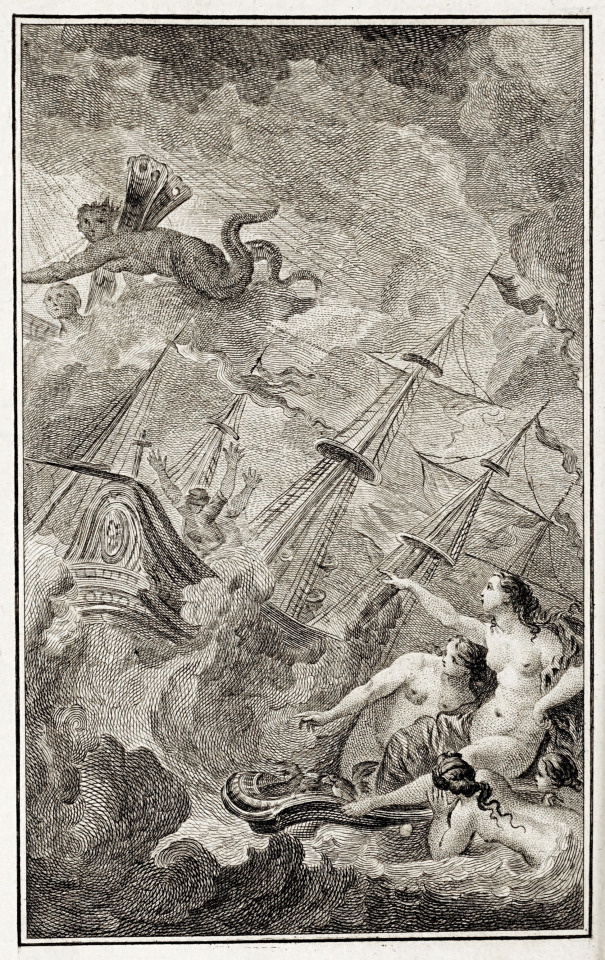
''La Lusiade de Louis Camoëns'', 1776
Canto 6: ’Venus appeasing Tempest’
Source
#Louis Camoëns#la lusiade#frontispieces#venus#tempest#roman myth#roman mythology#vintage art#vintage illustration
114 notes
·
View notes
Text
okay you know what? I think it's time for me to take advantage of the release of the Percy Jackson series to talk a little about the relationship between the Greek and Roman gods, because I have a feeling that we're going to have a new generation of people who are convinced that the Romans "stole" the gods of the Greeks and... um, I feel the need to talk and analyze this thing with you. Because the matter is much more complicated than you think
Like SERIOUSLY, the pjo fandom and Greco-Roman mythology enthusiasts in general need this chat.
First of all it is important to understand how the Italic populations came into contact with Greek culture, and who the first Romans were.
Southern Italy (Sicily, Calabria, Campania and Puglia) was colonized by the Greeks since the 8th century BC.
Like any colonization, the local population had to adapt to the culture, religion and language of the colonizer (in Italy there are still two dialects coming from ancient Greek. Griko in Puglia, and Grecanico in Calabria). Every part of the territory considered Magna Graecia (Megàle Hellàs) presents archaeological finds relating to the Greek colonies, and with them also temples dedicated to the gods. (So much so that in Sicily, at the beginning of spring the Antesphorie (or antephorie) were celebrated in honor of Demeter and Persephone, for example).
The entire Etruscan pantheon was strongly influenced by the Greek one. The indigenous deities were joined by the Hellenic ones, creating a new religion.
But still: who were the Romans? The legend of the foundation of Rome refers to Romulus and Remus, but from an archaeological point of view the Romans were probably the result of a mixture of Latin, Sabine (plus Samnites and Sabelli*) and Etruscan peoples. The latter influenced the initial Roman Pantheon the most. Just think of the similarities between the Etruscan goddess Menrva/Menerva and the Roman goddess Minerva.
The same applies to Maris and Mars, who among other things share holidays in March (a month dedicated to them moreover).
Unfortunately there is not much information on the Sabine and Latin ethnic group, but it is known for certain that Etruscans had contact with Magna Graecia, and the Greeks in general, so their culture was never unknown to the Romans.
So what does this tell us? That the Italic populations knew the Greek Pantheon, because they had been colonized and/or influenced by the Greeks. The first Romans can't exactly steal something that's already part of their culture.
*Samnites, Sabelli and Sabines were part of the same ethnic group, and although all three groups can generally be called "Sabines", I preferred to specify. At the same time it is not known how involved the Picenes and Irpinians were initially with the birth of Rome, so I have not mentioned them.
#it was a very quick and not very in-depth post#but it's late and I just needed to vent about this#if you want to make a joke about the Romans stealing religion from the Greeks that's completely ok#I do it too!!#but I think it is important to understand what really happened in the early period of Roman history#the Romans didn't wake up one morning thinking “you know what I should really do? steal a random religion”#the historical context is much more complex than what one might commonly think#and I understand that in schools outside italy there is no interest in explaining the phenomena that led to the birth of the Roman religion#but in doing so in my opinion it creates a great confusion that could be avoided#did the Romans assimilate numerous religions throughout their history? absolutely#just look at what happened with the Egyptian and Mithras#it wasn't a question of cultural appropriation but more of “I pray to all the gods that exist so no one can get angry with me”#greek myth#greek mythology#roman myth#roman mythology#roman history#greek history#pjo#pjo series#please learn about the Etruscan gods because they are much cooler than the Greek and Roman versions
10 notes
·
View notes
Text
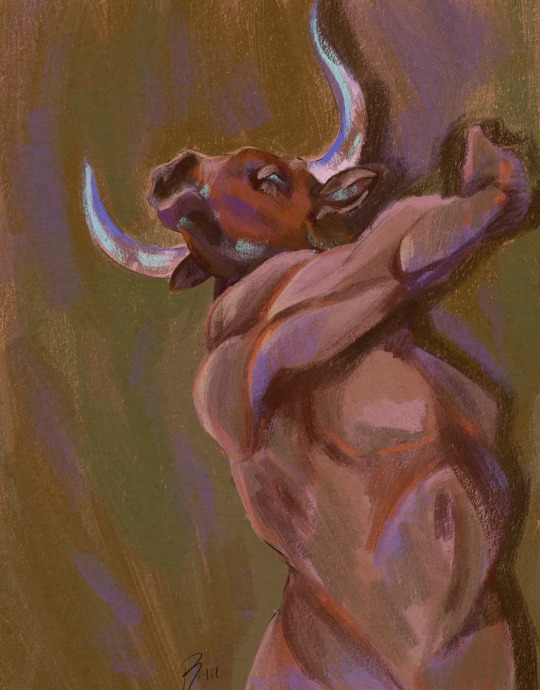
Minotaur 🐂
#digital art#procreate#art#artists on tumblr#digital arwork#bull fight#minotaur#minotaur art#greek mythology#ancient greek#roman mythology#roman myth
29 notes
·
View notes
Text
ever seen a take on ancient texts so rancid it makes you want to gouge out your eyes
#“i hate roman takes on greek texts because it makes the trojans heroic”#“and the trojans were so keen on paris kidnapping helen”#“ugh the misogyny”#babe the text opens with achilles and agamemnon arguing about captive women#who were war slaves#and often brutalized#like yes there's so much to be discussed about the misogyny in the homeric texts#but if you apply tumblr lenses of analysis you're just stupid#and i don't make the rules#greek mythology#greek myth#roman mythology#roman myth#mythology#homer#the iliad#the odyssey#the aeneid
9 notes
·
View notes
Text
Dear my mother, you don't understand...
My feelings to him, the warmth of his hands.
My bones he saw this day on the hill.
So really you think, it wasn't my will?
— P. Plinius






Richard Armitage as modern! Hades
#richard armitage#obsession#obsession netflix#netflix#charlie murphy#hades#persephone#greek aesthetic#greek myth aesthetic#greek mythology#greek myth#greek gods#greek pantheon#hades and persephone#persephone and hades#hades x persephone#persephone x hades#proserpina#roman mythology#roman myth#roman gods#roman pantheon#demeter#ричард армитидж#аид#персефона#аид и персефона#греческая мифология#mythology#myth
33 notes
·
View notes
Text
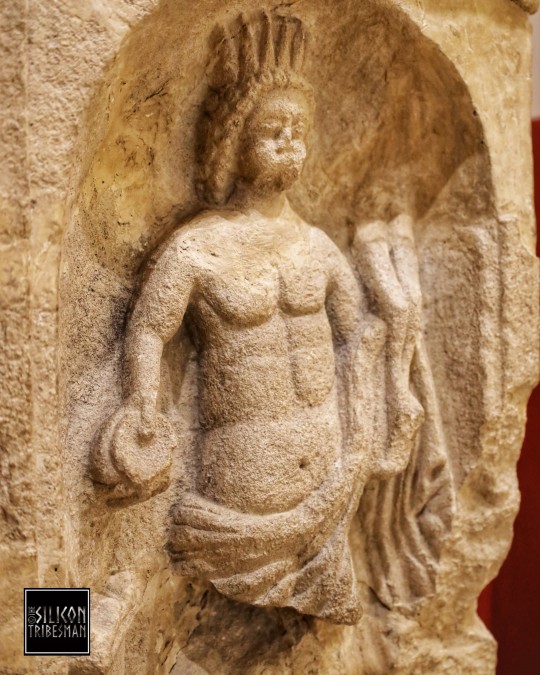
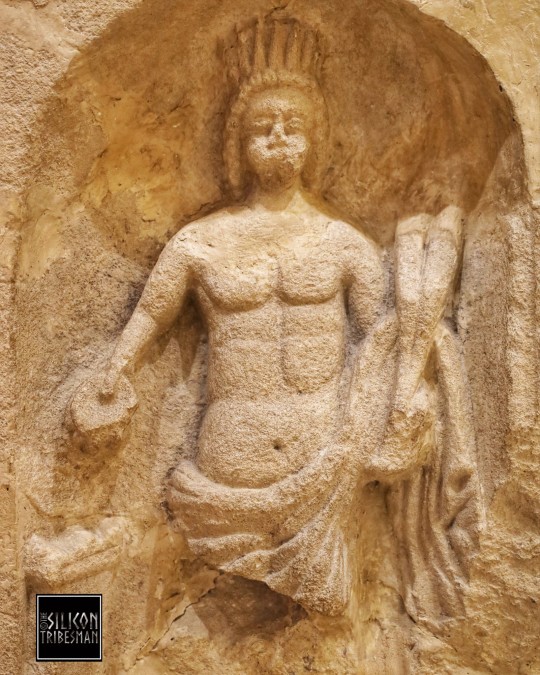
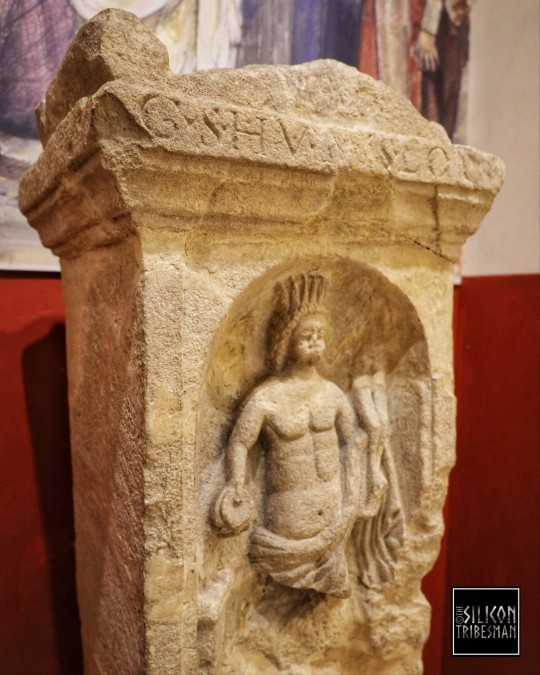
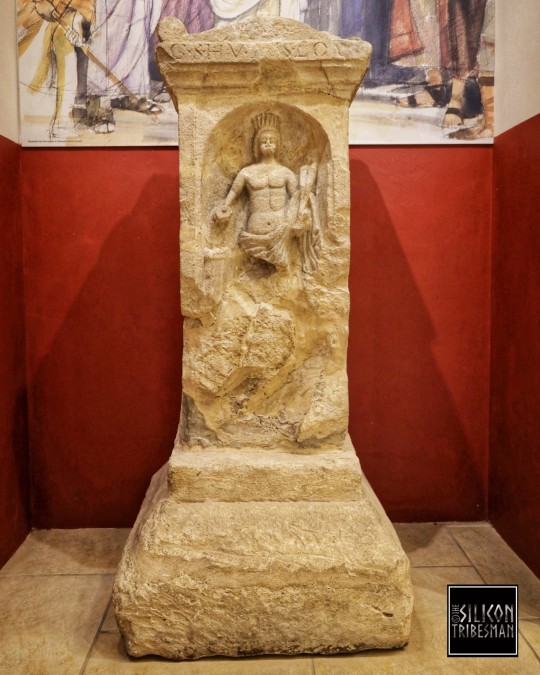
Roman Genius Loci
A Roman altar dedicated to the Genius Loci, the 'Spirit of the Place: It was found in Sheep Street, Cirencester in 1880.
The Genius wears a crown and holds a cornucopia in his left hand. In his right hand he holds a patera, (a sacrificial bowl) extended over an altar.
Corinium Museum, Cirencester
#roman#romans#altar#genius#symbol#roman myth#roman empire#roman belief#Corinium#Cirencester#ancient cultures#ancient living#roman figure
42 notes
·
View notes
Text
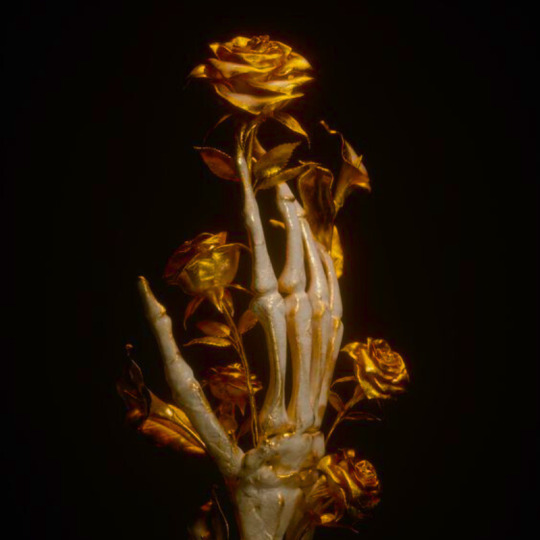

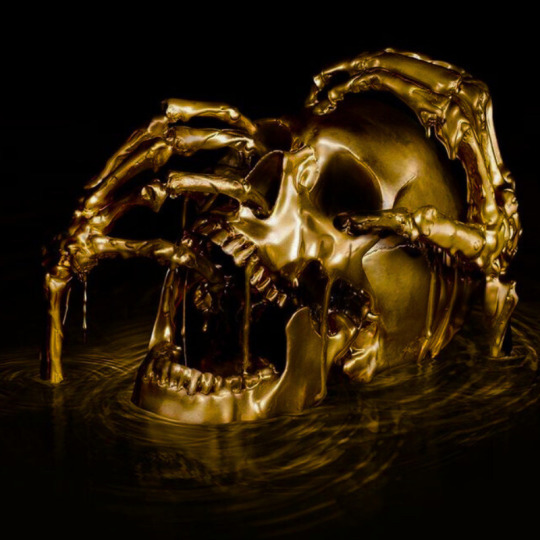
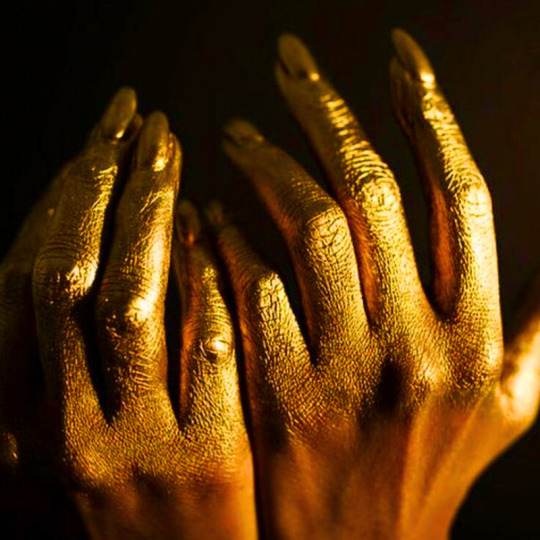
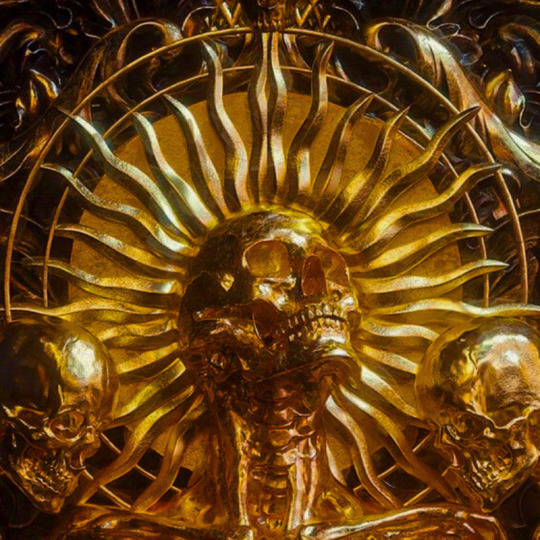
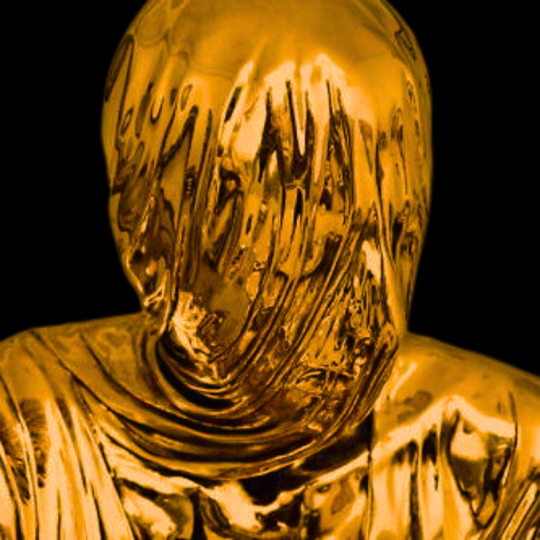


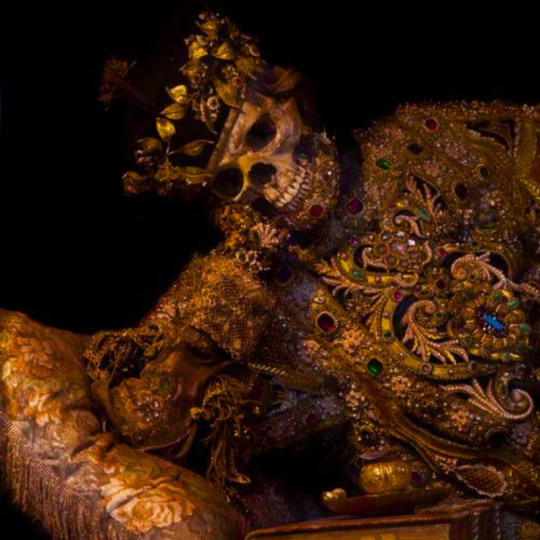
roman mythology: pluto
pluto was god of the dead and lord of the underworld. a figure of enormous dread and terrible might, pluto dispensed luck and controlled the fates of all mortals. as commander of the subterranean realms, he was the master of ores, metals, and the precious stones found within them. for this reason, he was celebrated by many as the bringer of wealth.
#roman mythology#pluto#gods and goddesses#romanmythologyedit#roman myth#romanmythedit#mythologyedit#mythedit#romanedit#*mine*
482 notes
·
View notes
Note
If you were to describe the Sides as gods or heroes in Greek/Roman mythology, who would be who?
HELL YEAH, my boy, that's my jam! I literally grew up with this stuff, thanks to my dad who read me stories about Greek myths when I was a child. So yes, I will be more than happy to reply to your simple ask, with a stupidly long post :D
A premise: I couldn't choose between gods and heroes, so I picked one god AND one hero for each Side. And I chose both males and females, because some females were just *chef's kiss* and I had to pick them.
Also, I tried to not make the most obvious choices, like Apollo for Roman or Dionysus for Remus. And no, I didn't pick Janus Bifrons for Janus because he is clearly inspired by that god, so where would be the fun in choosing someone this obvious?
Of course, you may not agree with my choices: in this case, please feel free to share your ideas and try to change my mind. I would be more than happy to know what you think!
A tiny little warning: if you ever read one single myth, you know there's everything inside it. Personally, I don't think there's nothing you should be scared of - on the contrary, this stuff is part of humanity's culture and it should be known by everyone. But hey, we live in a free world and if you're easily impressed, read at your own risk.
_______________________________
Patton
Hero: Orpheus
Brief recap: Orpheus was a legendary musician, well known for his ability to charm all living/non-living things with his music. One tragic day, his beloved wife Eurydice was bitten by a snake and died, leaving him alone. He was so devastated by her death, he decided to travel to the underworld, in a desperate attempt to bring her back.
His mournful music softened the hearts of Hades and Persephone, gods of the underworld. So, they allowed Eurydice to come back among the living, but on one condition: Orpheus should walk in front of her and never look back, until they both had reached the living world. Orpheus accepted, took Eurydice’s hand and they started to walk their way back.
But once they got closer to the exit, Orpheus turned. The reason varies depending on the versions, but the one I grew up with was that Orpheus was so eager to finally see her, to turn back right after he was outside, forgetting she was still in the dark. And so, Eurydice disappeared again, this time forever.
Why is this hero perfect for Patton? I can explain it with just one word: love. Orpheus' story is a demonstration of the sheer, absolute power of love. Love is something so strong to push Orpheus, a mortal man, where no other mortal was supposed to go. He loved his wife so much, to not fear anything, not even death.
And when he turned back, he proved once more how deep and strong his love was.
But how? Wasn't that a bad choice? If he waited, he could've had his wife back, right?
Well, no. Because death is inevitable and no matter what happened, Eurydice would never come back to life.
You shouldn't look at this story with a realistic approach, but with a metaphorical one. The point wasn't that dead people can come back to life, but to show how strong love can be.
I am pretty sure you have ever loved someone or something in your life, no matter if it's a lover or a very close friend. And I am pretty sure that, if you can't spend your time with them, you won't just forget them and do whatever else: on the contrary, you would probably think about them a lot and wait for the moment you will be together again.
And once that moment finally comes, when you can finally see them… would you ignore them and not give them a single glance? Or would you look around, searching for them, happy and eager to see them once more?
If Orpheus never turned back, he would've demonstrated he never loved his wife. He was so bored and uninterested, to not even care to look at her. But he turned and did what every other person in love does: looks for his beloved.
This is why I think he works so well for Patton. Patton overflows with love for his family. Everything he does is out of love - even when he makes a mistake. And, since Patton is the embodiment of "most of Thomas' emotions", I am very sure he understands Orpheus' grief too. He is probably the only Side who would look at Orpheus, understand everything he does and know that he would do the exact same thing, if he were in his place.
---
God: Demeter
Demeter is the daughter of Cronus (god of time) and Rhea (titaness daughter of the earth goddess Gaia and the sky god Uranus), so she is Zeus’ sister and one of the twelve Olympians - aka one of the most important deities of the Greek pantheon.
I specifically chose Demeter for two reasons: she presides over the sacred law, i.e. all the ethical and moral codes taught by religious traditions (and Patton is the embodiment of these same codes). And she is mostly known as the goddess of harvest and agriculture.
You may think "what does this have to do with Patton?". First of all, being the goddess of agriculture means giving nourishment to everything - and that implies a connection with fertility. Patton is a father and fathers are, by definition, fertile.
But being able to nourish every living being also means controlling the whole cycle of life and death. And that's a huge power to handle. I would like to remind you that, when Demeter's daughter Persephone was abducted by Hades, Demeter was so desperate she stopped doing her job and that led to the death of every. Single. Living. Thing. Zeus himself had to intervene, otherwise they would have faced the extinction of all life on earth.
Sure, Patton cannot wipe out all life from the planet, but he has the potential to end Thomas' existence - which is, in comparison, the same thing. And, just like Demeter, when he shows how dangerous his power can be, he doesn't do it out of malice, but of desperation.
Speaking of Patton's huge potential, this is why I also associate him with Cronus in my fanfictions. However, I like to think that Cronus is what Patton would have become, if he was not who he is.
Both Patton and Cronus embody the authority, especially represented as the fatherly figure - which has always been considered the ruler of the household and the one who held the power over his offspring.
Cronus in particular represents the tyrannical, all powerful authority that, in order to keep everyone under its control, is ready to devour his children - aka, to bend everyone to its will. In a way, he can be considered a representation of the Superego as well.
Patton is the same. He also represents the Superego - heck, he's the embodiment of Thomas' Morality. He is his "sense of right and wrong" which Thomas learned from his parents, of course Patton is strongly associated with the father figure, the authority and the Superego.
And yes, he fully has the potential to become like Cronus. He's powerful enough to become a tyrant and to (figuratively) devour his own children to keep his power. He could do it, we saw how deeply rooted his influence is in Thomas' mind.
But he will never be like Cronus and it's all because of one tiny, little difference: Patton is connected to emotions, while Cronus is not. Patton has the potential to be a ruler and a tyrant, but his essence is much, much kinder: Patton is full of love, he adores his kiddos and would never do anything to purposely harm them. Hence why he is more like a giver of life, rather than an overwhelming tyrant.
_______________________________
Roman
Hero: Heracles
If this name sounds familiar, it's because the Roman equivalent is Hercules. You probably heard it somewhere :P
But, well, what Disney told us was a very, very short story of all the stuff Hercules did.
The thing is: Heracles is the most famous, beloved hero of Greek mythology. And, since he was so loved, he was everywhere. Argonauts? One of them. Perseus’ story? A brief appearance. Prometheus' story? He's here too. Alcestis’ tragedy? Here he comes, saving the day. The 12 Labours are just his most famous adventure, but if I have to talk about all the stuff he did, this post would be endless.
What I can tell you, is that Heracles fought a lot of beasts, defeated a lot of people and was a beloved hero with a kind heart. But he was also a tragic hero too: his first marriage ended with him killing his wife and children because of a fit of madness, induced by Hera. When Heracles came back to his senses, he realized what he did and visited the Oracle to find a way to expiate his crime. The Oracle told him he had to serve his enemy, King Eurystheus. And this is the guy who gave him the Twelve Labours.
This is why this hero is so used and so loved. He's strong, sure: he's the perfect representation of bravery and strength. And he has a kind heart, because he always fights for a reason, not for bloodlust.
But he's also a hero who fails and does wrong. He's not perfect, despite his demigod nature. And when he fails, he repents and works even harder to expiate. A bit like a certain Side who is a hard worker and always tries to do his best.
So... well, it may sound clichè that Roman gets the quintessential of the hero, but Heracles is more than just "slaying monsters and being cool". He is divine, but human too. He is strong, yet humble. And he is a hard worker, who doesn't backs down when it's time to help.
---
God: Aphrodite
I didn’t want to pick the most beloved Greek god for Roman, but I HAD to pick the most beloved goddess.
Aphrodite is the goddess of love, beauty, pleasure, passion, sexuality and two of them are Roman's canonical roles. She was also associated with fertility, procreation and sex and the intercourse was the most physical representation of her power: the union (no matter if marital or not) was something ancestral, born from that need humans have that pushes them together.
This reminds me a lot of creativity. Creativity is also an ancestral human need (we started to show creativity since we lived in caves), it's something able to bring people closer (at least emotionally), it's strongly connected with beauty in all its shapes and forms.
And it always stems from love. No matter what kind of creativity is, love is always one of its main components. It could be love for you, your family, your lover, your friends, your world, your job, it doesn't matter. Love is always present.
I think this is also what made Aphrodite such an irresistible goddess: not just humans were attracted by her, but even gods. And it makes sense, because love and beauty ARE irresistible, humans ARE intrinsically attracted by beauty (yet alone such human gods as the Greek ones) and, despite talking about love for centuries, we never get tired of exploring it.
So it just makes sense that the Side who embodies such a loved aspect of the human condition as its creativity, is also the embodiment of passions and beauty.
_______________________________
Logan
Hero: Psyche
Brief recap of her story: Psyche was a mortal girl, so beautiful that people considered her even more beautiful than Aphrodite, the goddess of beauty herself. Of course Aphrodite did not like that, so she decided she would get her revenge, by making Psyche fall in love with the most hideous, horrible man.
Eros reached the girl to do what his mother asked, but as soon as he saw Psyche, he was so captivated by her beauty that he hurt himself with one of his arrows and fell in love with her.
In the meantime, since Psyche could not find a husband, her parents consulted the Oracle, who told them she would marry a terrible beast and to leave her on a cliff, where her husband would take her away.
Saddened by these words, her parents complied and Psyche was left to meet her destiny. Here she was abducted by the god wind Zephyrus, who left her in a beautiful, empty palace.
During the night, Eros finally met her and, in utter darkness, they loved each other. He told Psyche she was free to do whatever she wanted, but there were only two things she could never do: ask his name or look at his face.
Psyche complied and, from that day, she spent every single day alone in her palace and every single night with her mysterious husband.
Things were fine, until her sisters visited her. They were so jealous of her beautiful, luxurious life, they convinced Psyche she had to see who her husband really was and if he really was a monster, then she had to kill him.
One night, after Eros fell asleep next to her, Psyche carefully lit an oil lamp, grabbed a knife and let the light shine on his face. And she realized her husband was not a hideous monster, but the beautiful god of love.
Eros woke up, shocked and scared by Psyche's betrayal, and flew away, leaving her alone. Full of regret, Psyche pleaded with Aphrodite, asking for her help.
Since the greek gods don't hold grudges nope nope, Aphrodite tested Psyche with impossible trials and ended up killing her. But Eros saved his beloved wife, took her to Olympus and she became a goddess herself. And they had a daughter: Hedone (Voluptas, in her Roman variant), the goddess of sensual pleasure, enjoyment and delight.
But now you may ask: what does Psyche have to do with Logan? Well, in order to reply to this question, we should look at the deep meaning of this story.
Eros represents all the human instincts and desires, the most irrational part of ourselves. On the other hand, Psyche represents our minds, our logic, the most rational part of ourselves. Even today, the word psyche is related to the mind and the conscious.
Hence why the story of Eros and Psyche is nothing but the journey of the rational that accepts and embraces the irrational. By going through the different trials, Psyche/the rational accepts Eros/the irrational as part of herself, someone she cannot live without, someone to die for.
This is the same journey Logan should take. Just like Psyche, he is a fully rational figure, who ignores (and even suffocates) the irrational surrounding him. Just like Psyche, Logan should also face the less logical parts of himself, accept them and finally embrace them as something fundamental.
And maybe, thanks to this union between rational and irrational, he will also have his own kind of “hedone”: not much like a physical pleasure, but rather a mental peace and spiritual satisfaction.
---
God: Athena
I mean... come on. How could I not choose Athena? She’s the literal goddess of wisdom!
But she's not just that. She is also the goddess of arts, handicraft and industry. And this fits Logan even more because, as I said several times, logic always plays a role in the creative process. Hence why it makes sense he's connected with arts and industry.
In addition to that, Athena is also a warrior goddess. In particular, she represents the most “intellectual” side of war - military strategy, heroism, justice, skills and so on.
Again, this works for Logan too. Logan isn't a frail Side, but a tough one, who is never too afraid to hit back when someone tries to insult him.
Thinking about that, this connection with war could also work as a possible connection with Orange. Why? Well, if Orange is Wrath, then he would probably be associated with Ares. And if Athena represents the rational part of war, Ares is the irrational, bloodthirsty part of it.
So, just like Athena and Ares are two aspects of war, Logan and Orange could be two aspects of reasoning: the extremely logical one and the furiously emotional one.
_______________________________
Virgil
Hero: Prometheus
Prometheus is a complicated hero and that's why I chose him for Virgil.
First of all, he's a Titan, so he's already different from all other heroes who are mostly demi gods or mortals. Despite that, he's very close to humanity - he is even considered the creator of mankind.
Prometheus is universally famous for one single act: he stole the fire from the gods and gave it to humanity. Because of that, Zeus punished him, by bounding Prometheus on a rock, where an eagle would eat his liver during the day. During the night, the liver would grow back, only to be eaten again the day after in an ongoing cycle.
This story made Prometheus a symbol in the western culture. Over the centuries, he has been seen as a rebellious figure who defies authorities, a lone genius who wants to improve human existence no matter the consequences, a spirit of knowledge free from the chains of ideology. It's no surprising humanity loves Prometheus this much.
And if you want a reason too, just think of the colossal importance of fire in humanity's development. Fire gave protection to our ancestors and became a source of heat for the first men.
But, even more importantly, fire allowed them to cook their meat. This is what made us evolve: cooked meat was more nutritious, helped our brains develop more, made us smarter. We wouldn't be the most dominant species of this planet, if it wasn't for the fire.
And this myth emphasizes how important fire is. It has divine traits, because it was something for gods only. And it is immensely precious, because Prometheus suffered a terrible punishment for stealing it. Even without knowing how important fire is for our development, the myth alone makes us think that, wow, fire really is important.
In my opinion, everything about Prometheus and his story just screams "Virgil". Prometheus is a hero among the humans, but a traitor among gods: Virgil is a good boy, but he has been seen as a bad guy too. Prometheus gave humanity a powerful and terrible gift: Virgil's anxiety can both be extremely useful and immensely dangerous. And just like Prometheus was punished, every time Virgil overused anxiety he was mistreated by Thomas and the others.
But let's not forget that Prometheus was a rebellious figure too: he literally fought the authority to get something. And, by his own admission, Virgil "fights The Man", so he is a rebel.
Last but not least, Prometheus is a tragic figure: he did something precious and fundamental to mankind, yet he was punished for it and his punishment would go on forever. Virgil loves Thomas, cares about him and his anxiety will always be that alarm clock Thomas needs... yet, he will also suffer from the counter effects of anxiety, forever.
However, Prometheus' story doesn't end here. After centuries of suffering, Eracles broke Prometheus' chains and freed him. Do you remember which Side gave Virgil the final push towards full acceptance?

---
God: Hephaestus
Hephaestus is not a typical god either.
When his mother Hera noticed he was limping, she threw him off a cliff. Despite that, Hephaestus survived, was raised by the Nereids and even learned how to keep a fire lit underwater. Over the years, he became a skilled craftsman and, according to the oldest version of his story, he got revenge from his mother when he came back to Olympus, only to leave again because fuck those gods.
In case it wasn't clear, Hephaestus is very cool.
Hephaestus is also considered a grumpy god and what a surprise, who would've imagined it. His own mother treated him like shit, no wonder he's so grumpy.
Despite that, he is married and not with a random goddess, but with Aphrodite herself. But hey, Aphrodite is still Aphrodite, so she had an affair with billions of other people.
In case it wasn't clear, fidelity wasn't so important among gods.
Why is this god perfect for Virgil? First of all, because Virgil is grumpy too. His second name is "grumpy". Virgil Grumpy Sanders. That's him.
Then, it's because Hephaestus is an incredible artist. He's the god of fire, but also of metalworking, blacksmiths and even of sculpture. Hephaestus made the most beautiful jewels and the most powerful weapons. Virgil is canonically a poet, so he creates something beautiful already. But he also has a part in Thomas' creative expressions, as Roman explained in AA-part 2:
[Roman]: Anxiety, you're... ...what pushes Thomas to rehearse and rehearse before performances. You are that nervousness that he feels right before going on stage, but just as he does so... you ease up, and... you let his excitement and passion for performance take over.
But there's another reason why Hephaestus is good for Virgil and it's because of its Roman equivalent, the god Vulcan. Hephaestus uses fire as a creative force and he's an artist, but Vulcan was a much more terrible god: his own name is related to volcanoes and, just like the volcanoes, he has strong, destructive powers. He was literally described as a "daemon of fire coming up from the earth".
This encompasses so well the dualism of Virgil's anxiety. He can use his power to make something beautiful, to protect Thomas, to make him stronger and braver. But his power can also be destructive for Thomas' mind and dangerous for his life. It all depends on how he uses it.
(On an unrelated topic: I like how different volcanoes' fire is seen in both ancient Greece and Rome, it makes me think about the different volcanic activity in both countries.
Greece doesn't have a lot of active volcanoes. Some were active in the past, but they were on very small islands, far away from the mainland. And sure, there were some destructive eruptions, but in very ancient times (like the Minoan eruption, which devastated Santorini's island). It makes sense that Greeks saw volcanoes as a power coming from the water - or related to water anyway.
On the other hand, Italy still has a lot of active volcanoes, both on the mainland (Vesuvius) and on one of the two biggest islands (Etna). And Vesuvius is especially known for the destructive eruption that destroyed Pompeii. So I can understand why they saw fire and volcanoes as "a daemon coming from the ground".)
_______________________________
Janus
Hero: Odysseus
The reason why I chose Odysseus is very simple: he is known for being a cunning, deceitful hero. He has been referred to by both Greeks and Romans as "deceitful Odysseus" and he always made his way by lying and deceiving everyone.
For example: he didn't want to take part in the Trojan war, so he pretended to be insane. He wanted to save himself and his men from Polyphemus, so he lied about who he was, made the cyclop drunk and stabbed him in the eye. He wanted to take back his throne, so he dressed up as a beggar and slayed all of his wife's suitors.
Well, yes, he also kills a lot of people. But all heroes do, so nothing out of the ordinary. What makes him stand out so much is his intelligence. Odysseus was a liar, but he was a clever one. And his lies helped his people: he was the one who thought about the Trojan horse, after all.
But Odysseus also has the shittiest luck ever. He didn't want to take part in the war, but one of the Greeks unmasked his pretended insanity and he had to go anyway. After ten years of war, all he wanted was to come back home, but his men angered Poseidon - and it’s not a great idea to anger the god of the sea, when you’re coming back home by sailing in the sea. He finally comes back home but the Suitors are trying to take his throne and his wife.
Doesn't that remind you of something? Like, idk, a certain snake boy, who just wanted to be listened to once, but ended up making a mess between the Sides, faced Patton's breakdown and gave the push for Roman's breakdown. Just like Odysseus, he's a clever liar who just wants to live in peace, but ends up dealing with a lot of shit.
What a goddamn mood.
---
God: Moirai
The Moirai are not a simple god.
First of all, the Moirai are three gods, not one. And they are the incarnation of destiny. Wikipedia perfectly sums up their role as follows:
“The role of the Moirai was to ensure that every being, mortal and divine, lived out their destiny as it was assigned to them by the laws of the universe. For mortals, this destiny spanned their entire lives, and was represented as a thread spun from a spindle.”
And so, we have the three Moirai: Clotho, “the spinner”, who spun the thread of life. Lachesis, “the allotter”, who measured the thread of life. And Atropos, “the inexorable”, who cut the thread of life and, by doing that, decided how each person should die.
Because of their role and their importance, Moirai were considered even above the gods: they were enforcers of fate and fate was something inescapable in Greek myths, a blind and mysterious force nothing and no one can resist - not even gods. Hence why the gods feared Moirai.
This reminds me a lot of Janus. Despite being one of the Sides, Janus has powers over them. He can be considered an harbinger of change and change is something as equally powerful and inescapable as fate was for Greeks: you cannot escape change, no matter who you are.
Just like Moirai, Janus can also foresee things. Moirai usually appeared after a child's birth, to determine the course of its life and/or prophesize something that would happen to them: since Janus appeared, he brought changes and foreshadowings of what would come next.
Last but not least, Moirai are extremely mysterious. And isn't the snake boy a walking mystery too?
_______________________________
Remus
Hero: Medea
Medea is a wonderfully complex character for the time and the protagonist of one of the most famous Greek tragedies.
First of all, she was a sorceress and a very clever woman. Thanks to her mind and her magic, she was a great help for Jason in his search for the Golden Fleece and, once he finished his quest, the two got married.
Medea and Jason had two children and lived a happy life. But after ten years of marriage, Jason decided to abandon Medea and marry Glauce, king Creon's daughter.
Medea was shocked: she tried to talk to Jason and reminded him how much she helped him in his quest. She pleaded with him, because she knew that, after the marriage, she would be banished from Corinth along with her children.
But Jason apparently hit his head and changed from a hero to a dick and, since he is now in full "dick mode", he doesn't give a damn.
Livid with rage, Medea says everything is fine, Jason could marry Glauce and she will not get in his way. Jason knows nothing about women and believes her.
In the meantime, Medea plans her revenge: she sends a beautiful dress and crown to Glauce as a wedding gift, both covered with poison. As soon as Glauce touches them, she dies in great anguish - and when the father tries to help her, he dies as well.
But Medea is not satisfied yet: in order to be sure Jason will never have a living bloodline, she murders their children and then leaves, to marry another king.
Moral of the story: when a woman suddenly agrees with your stupid plan, it's not because you are clever, but because she wants to fuck you. And not in a good way.
Jokes aside, there is a lot inside this woman and this is what makes her so intriguing. She's a terrible murderer, who suffocated her own maternal instinct and did the most terrible thing ever: killing her own children. She's mad and insane. But she's also a rejected wife, who seeks revenge because she passionately loves her husband.
For all these reasons, you can see why Medea doesn't fit with the general vision of women of the time: too clever, too skilled, too manipulative, too violent, in a time period in which women were submissive, maternal figures.
This is why I think she's so perfect for Remus. Remus doesn't fit either, Remus is too clever, too skilled and too violent. Remus is wonderfully useful when he wants to be. Remus is incredibly dangerous when he wants to be. Remus is as much prey to his instincts as Medea was.
And let's not forget he's a rejected figure too. Just like Medea has been rejected by her husband, Remus is the "unloved brother from Genesis". And this adds another layer to his insanity: we can understand why he's so eager to get everyone's attention, we can emphasize with him. Just like we can emphasize with Medea, despite her murderous acts.
---
God: Eros
If you think Eros is not perfect for Remus, please allow me to change your mind.
First of all, Eros isn't a cute little baby with wings, surrounded by hearts, all cutesy and nice. That's the diluted version of Eros, developed through the centuries.
According to the greek myth, Eros is the god of lust and sexual desire. In some versions, Eros is one of the four original primeval forces born at the beginning of time. In others he's the son of Aphrodite and Ares. In others he's a "daimon", namely a creature between divinity and mortality. In Psyche's story, he's described as "a beast even the gods fear". "Cute" is not the first word we would use to describe him.
Then we should focus on what his name means. While the English language uses one term only to talk about the vastness of the concept of love, Greeks had much more diversification.
In particular, there were three main ideas of love: agape, philos and eros.
Agape is the "perfect love": it's unconditional, total and spiritual. Agape has been identified over the centuries with God's love for his creation - an universal love which elevates man.
Philos is the "fraternal love": it doesn't exist just between brothers or biological families, but it's a sense of kinship and deep sharing with someone else who is important for your life. It's a deep, sincere friendship, made of complicity and common aims.
Eros is the "erotic love": It's that kind of attraction that pushes humans both physically and sexually and has the potential to evolve into real love. It's attracted by beauty and looks for satisfaction of its desires. It's something so strong to inspire courage, valor, great deeds and even vanquishing man's natural fear of death.
This is what Eros represents. No wonder he's so incredibly powerful and scary enough to be feared by gods. According to the Greek myth, no one could escape his arrows: not humans, not beasts, not even gods. If Eros' arrows hit you, you are overwhelmed with desire and longing and you cannot stop it, until your need is satiated. Not even Eros was able to resist his own arrows, when he fell in love with Psyche.
I really like this, because it gives a bigger, more complex vision of what love actually is. It's not just butterflies in the stomach or cute blushing or being happy: it's something equally wonderful and terrible, something that makes you feel the best and mortally ill at the same time. It turns everything beautiful and clouds the mind at the same time. It's a "divine curse" and it makes sense such power is represented by a frightening god.
This is perfect for Remus. Remus, who is both useful and terrible, who embodies sexual needs down to their most instinctual parts. Remus, who is unstoppable and impossible to contain, just like Eros' arrows. Remus, who is made of instincts and passions, sometimes as violent as the erotic ones.
Remus is Eros in its Greek, raw version and I adore him.
#sanders sides#ask#sanders sides theory#patton sanders#roman sanders#logan sanders#virgil sanders#janus sanders#remus sanders#greek gods#greek myth#roman myth#I love this stuff#I got a bit carried away#zero regrets
92 notes
·
View notes
Text
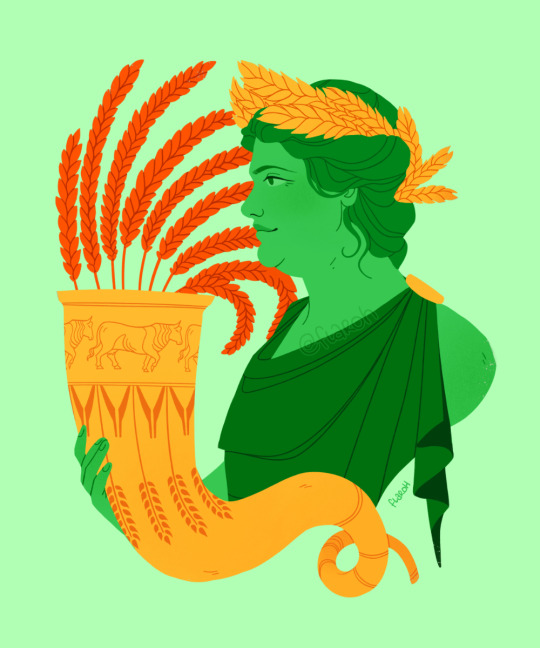
Manifesting a bountiful 2023 this Cerealia 🤞🌾🔥
Around April 19th, the seven day festival of Ceres would take place in ancient Rome. Mnay games and rituals took place during this celebration, including circus games and animal sacrifice. The Romans believed this worship would help protect their crops from disease and pests 🐀
300 notes
·
View notes
Text

Avernus - crater west of Naples, appears in Virgil's Aeneid as the entrance to the underworld
I made the background with liquid gold which only cost me 6 hours of my life and also the rest of my sanity. I will probably do it again.
#averno#avernus#aeneid#virgil#jugendstil#secession#sezession#art nouveau#roman mythology#roman myth#greek myth#greek mythology#traditional art#traditional artwork#watercolour#liquid gold#portrait#fantasy art
8 notes
·
View notes